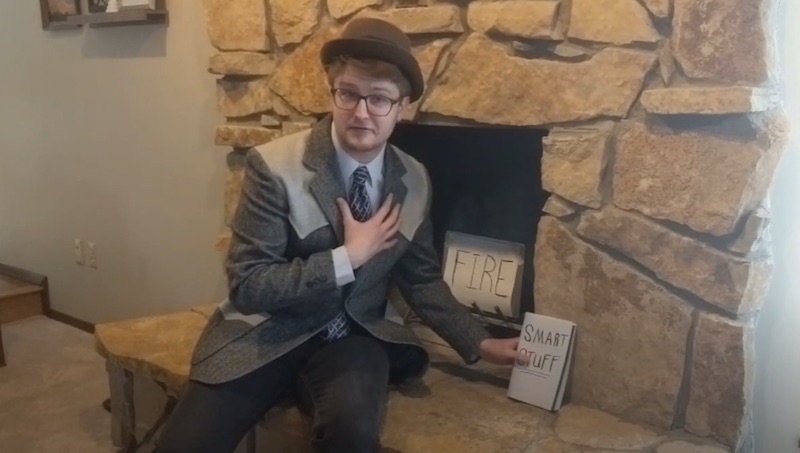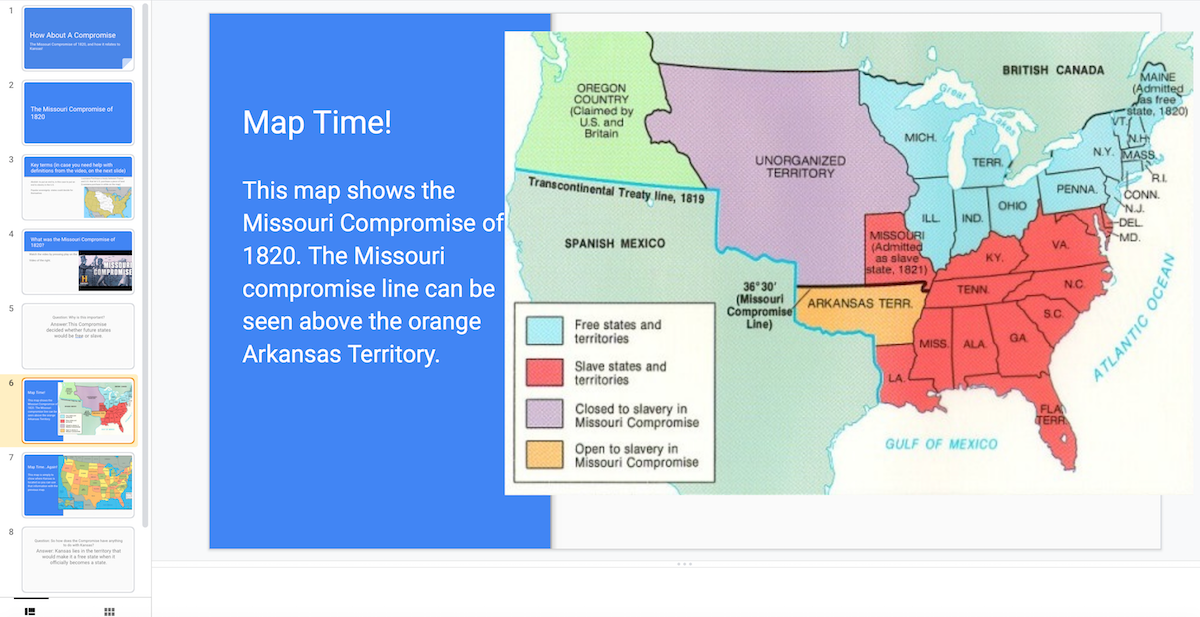 Wichita State University senior Will Mercer contributed lesson plans ranging from
the 1973 OPEC oil embargo to the creation of judicial review under Marbury v. Madison.
Wichita State University senior Will Mercer contributed lesson plans ranging from
the 1973 OPEC oil embargo to the creation of judicial review under Marbury v. Madison.
In mid-March, lesson plans suitable for remote learning became a valuable tool as teachers (and parents) scrambled to keep students interested and on track.
In stepped Wichita State University student teachers with videos, clarinets, John Lennon, baseball, soccer, Greek gods and Abraham Lincoln. The COVID-19 pandemic took them out of the classroom. It did not stop their contributions to education.
“Instead of doing lesson plans to send to me, we try to help actual teachers and actual kids,” said Dr. Aaron Rife, associate professor in the College of Applied Studies.
Rife and 13 seniors in the history/government education program are creating lessons and materials that teachers can use to teach children over the internet or at home. The videos, lesson plans and slide shows are uploaded to a Google classroom that’s available to teachers.
“It went from a sense of uncertainty to making sure we’re at least getting something tangible and beneficial out for somebody to be helped during all this,” said Will Mercer, a senior majoring in history education. “Dr. Rife has now made it very clear to us: We are teachers. We are here to helps kids. We are here to help teachers.”
The students upload their lesson plans to a History Teaching Resources, 6-12 at Google Classroom. (Password: y4jlakd).
“A lot of them are doing some truly fantastic work,” Rife said. “We wanted to try to do something meaningful and try to contribute to teachers.”
“Bases Loaded: Baseball and Jim Crow Laws” explains Jim Crow Laws and how Negro leagues helped break down racial barriers. “Executive Orders in Kansas” helps students understand the purpose and function of executive orders. In “Witnessing the Lincoln Assassination,” students analyze eyewitness accounts and consider how the assassination will affect Reconstruction.
Rife and his students are sharing the documents through email with local teachers and administrators and social media. He said a teacher from India is using some of the plans.
Mercer said it is important to make the lessons helpful for students who might lack strong internet or are limited with their use of a computer.
 Courtesy photo
Courtesy photo
“Part of the thinking is ‘How can I make a lesson that is accessible to somebody who can’t get online? And how can I give this to teachers that might have students who have packets that need to be printed?’” he said. “It’s made us really synthesize it down to manageable chunks. We’ve really been trying to make sure our lessons are pretty narrow, pretty focused and can be easily digestible in a small amount of time.”
Senior Kristi Neas, majoring in history and government education, plays the clarinet and incorporates music and video with lesson plans that deal with protest songs, Sputnik and “Home on the Range.”
In “Pop Culture – The Influence of Protest Songs,” the lesson includes songs such as “Imagine” by John Lennon and “Born in the U.S.A.,” by Bruce Springsteen.
“History can be sterile,” she said. “It really gets the students engaged, just because it’s something different.”
With the 1984 Springsteen song, she asks the students to read the lyrics and uses reflective questions about the tone and key phrases to help the students analyze the meaning.
Most of them, she said, know the song and consider it an upbeat celebration. The lyrics, however, show that “Born in the U.S.A. is a reflection on the Vietnam War and how the country treated veterans upon their return.
“They’re very surprised,” Neas said. “They haven’t had that context, or they don’t know what the Viet Cong is. So even when he says that, they don’t really register that it has any significance. Once you point it out, it’s like their eyes are opened and you get a little light-bulb moment, which can be really cool.”

